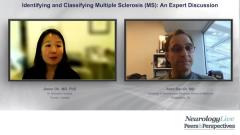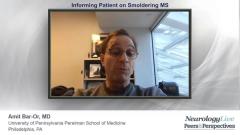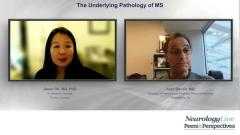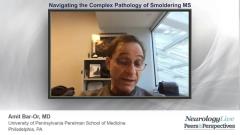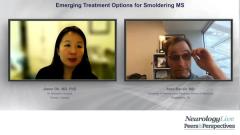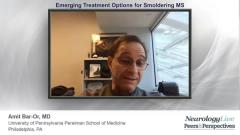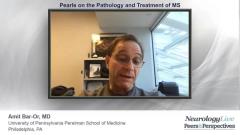
Pearls on the Pathology and Treatment of MS
Experts conclude their discussion with pearls on the treatment of smouldering multiple sclerosis and prospective advances in medicine.
Episodes in this series

Transcript
Jiwon Oh, MD, PhD: Last question, just looking to the future, what do you think is most important to be emphasized in future research efforts over the next few years when it comes to trying to get a better handle of smoldering MS [multiple sclerosis], understanding it, monitoring it clinically, what do you think our community should focus on most?
Amit Bar-Or, MD: Well, I think that we have already compelling evidence, and this is important for us to sort of socialize that, that treating with high efficacy therapy early to limit injury, because we don’t know how to fix injury once it happens, is very important. I think that the further development of the therapeutic classes that access the central nervous system [CNS] and can impact the CNS compartmentalized inflammation, as well as these other processes that have been implicated in smoldering progressive MS, including some of the degenerative mechanisms that I’ve identified, these will be continued efforts. And of course, the challenge will be, are we looking at a combination of several different therapies? Can we find one treatment that will accomplish it all? And in tandem, and as part of the challenge of developing these types of therapies, we need to continue to push the envelope on the measures, the outcome measures of the nonrelaxing progressive disease, including some of the imaging measures that we mentioned during the presentation and perhaps others as well, and to be able to identify and validate biological measures, such as fluid phase biomarkers that may also end up being incorporated into our clinical practice, but to do so also to be able to track and more efficiently be able to assess new therapies so that with relatively fewer patients and shorter timelines, timelines we’ll be able to really more efficiently assess the new waves of therapies that hopefully will have a big impact on both the relapsing and nonrelapsing aspects of this.
Jiwon Oh, MD, PhD: Thank you, Amit, as always for a rich and informative discussion. I’m sure our audience enjoyed it as much as I did, and I’d like to thank our audience for tuning in for this episode of Peers & Perspectives®. If you enjoyed the content, please subscribe to our e-newsletters to receive upcoming peer exchanges and other great content right into your inbox. Thank you very much.
Transcript was AI-generated and edited for clarity.
Newsletter
Keep your finger on the pulse of neurology—subscribe to NeurologyLive for expert interviews, new data, and breakthrough treatment updates.

